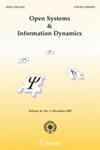超导量子计算机中非马尔可夫记忆的量化
IF 1.3
4区 物理与天体物理
Q3 PHYSICS, MATHEMATICAL
引用次数: 23
摘要
我们通过描述在其前面的门的条件下的门的性能来分析一系列门的时间相关性。使用这种方法,我们估计(i)门性能波动的大小,即由于非马尔可夫性引起的误差;(ii)记忆的长度;(iii)内存的总大小。我们的结果强烈地表明,在全称集中的几乎所有门上都存在非平凡的非马尔可夫效应。然而,基于我们的发现,我们讨论了通过充分考虑机器的非马尔可夫性质来实现更清洁计算的潜力。本文章由计算机程序翻译,如有差异,请以英文原文为准。
Quantifying non-Markovian Memory in a Superconducting Quantum Computer
We analyze the temporal correlations in a sequence of gates by characterizing the performance of a gate conditioned on the gate that preceded it. With this method, we estimate (i) the size of fluctuations in the performance of a gate, i.e., errors due to non-Markovianity; (ii) the length of the memory; and (iii) the total size of the memory. Our results strongly indicate the presence of nontrivial non-Markovian effects in almost all gates in the universal set. However, based on our findings, we discuss the potential for cleaner computation by adequately accounting the non-Markovian nature of the machine.
求助全文
通过发布文献求助,成功后即可免费获取论文全文。
去求助
来源期刊

Open Systems & Information Dynamics
工程技术-计算机:信息系统
CiteScore
1.40
自引率
12.50%
发文量
4
审稿时长
>12 weeks
期刊介绍:
The aim of the Journal is to promote interdisciplinary research in mathematics, physics, engineering and life sciences centered around the issues of broadly understood information processing, storage and transmission, in both quantum and classical settings. Our special interest lies in the information-theoretic approach to phenomena dealing with dynamics and thermodynamics, control, communication, filtering, memory and cooperative behaviour, etc., in open complex systems.
 求助内容:
求助内容: 应助结果提醒方式:
应助结果提醒方式:


